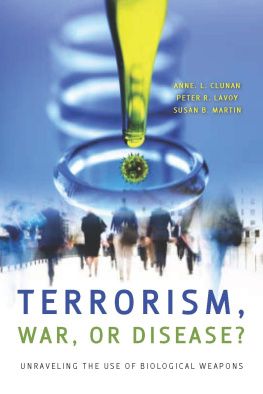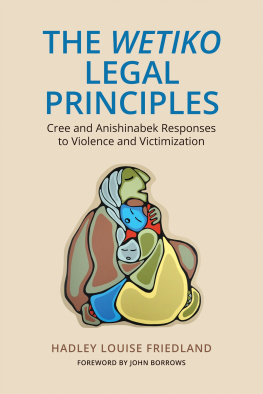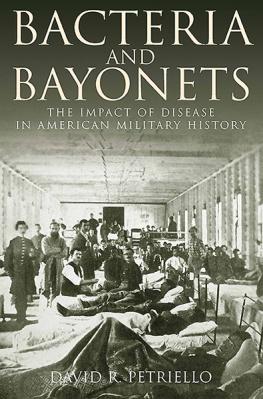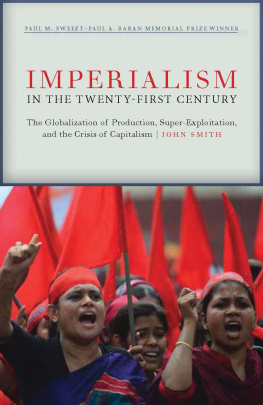Table of Contents
Dedicated to
Antonio del Buono
1900-1975
Otomi...
Mexicano...
Italiano...
Chicano...
Cosmic Man...
A Man to be Remembered
A Man to be Imitated:
He came to this Earth to be an Eagle and a Jaguar
Foreword
COLUMBUS AND OTHER CANNIBALS is, I think, the most important book ever written on one of the most important topics ever faced by human beings: why is the dominant culture so excruciatingly, relentlessly, insanely, genocidally, ecocidally, suicidally destructive?
Ive written many books about precisely this subject, and I have to admit that this question still baffles me. How could any group of people, no matter how insane, no matter how stupid, actually destroy the planet on which (or rather, whom) they live?
I often shake my head sharply, or pinch myself, hoping I will wake up and find that this culture and its destructiveness have all been a very bad and incomprehensible dream. But each time I wake up, its the same nightmare of murdered oceans, of salmon being driven extinct, of slavery and wage slavery, of dioxin in every mothers breast milk, of indigenous cultures being driven to the brink.
In my books, Ive suggested psychological reasons for the ubiquitous destructiveness, and Ive suggested sociological reasons. Ive suggested economic reasons, and Ive suggested philosophical reasons. Ive suggested reasons having to do with how we are trained to perceive (or rather, to not perceive). But as convincing as any and all of these may sometimes seem to me, there are still other times when these explanations are just words, and in no way suffice.
Of course no explanation can suffice in describing the motivations for the murder of this planet.
But Jack Forbess explanationexploration would be a better wordcomes as close to sufficient as anything Ive seen. He makes more sense in this small book than others do in books ten times this size.
Im not going to tell you his conclusions, or even his starting point. The book is short. You can read it in an afternoon.
Do that. And then let the implications make their way into your bloodstream, and into your cellsfingertip, thigh, elbow, brain, heart, stomach, lung, toe, tongue, eye, ear. If the book opens you up even one-tenth as much as it did me, you will never again be the same.
Thats a very good thing.
Buy this book. Read it. And then, armed with your newfound understanding, go out and stop this insane cannibal culture from killing the beautiful planet that is our home.
Derrick Jensen
Acknowledgments
IT IS always very difficult to live in this life so as not to be a damaged person or one who damages others. The successes that we may achieve, in terms of being a good person, a person living in beauty, justice and compassion, are successes that we do not achieve by ourselves.
In the same way, those concrete accomplishments that we gain, we do not gain alone. This book, like everything else I have ever done, has many authors. I must give credit to my father, an honest, compassionate, just man who provided me during my first twenty-one years with living proof that a person can grow straight as a pine tree without bending in even the slightest degree to hustling, deceit, or shallowness. His intellectual curiosity, his pride in working with his hands, and his appreciation of the natural world all greatly shaped my life. He was a hard-working man who never achieved material success, but he gave me a legacy of authenticity that I hope to pass on to my children.
It is hard to separate my mother from my father because both shared the same values of honesty, compassion and fairness. But my mother, especially, is a lover of plants and growing things. She and I both find it hard to cast aside a single plant, even a single cutting. We are both perpetually sticking things into the earth to grow (which is one reason why I have been a farmer of sorts by avocation).
But my human parents and grandparents, and aunts and uncles, have not been the only authors of the pages that follow. From a very early age the struggles of my Native American, Celtic, and Swiss ancestors to achieve justice and to resist imperialism inspired me with a vision of what constitutes the good life in a political sense. I cannot overemphasize the ways in which the stories of Powhatan and Opechkankanough, and of Sir William Wallace and Arnold Winkler, formed my early sense of rightness. I can still see pictures of the aged, captive Opechkankanough being murdered by an English soldier, of peasants and clansmen raising their swords and scythes in support of Wallace, and of Winkler leading Swiss peasants in a charge through the phalanx of Austrian spearmen.
I must acknowledge many other authors, including the goats, ducks, geese, dogs, cats and other animals who have taught me a great deal about the joy and spontaneity of authentic life free from the pettiness or evilness found sometimes in the human world. Trees and plants have also been my great friends, especially a giant oak tree which sheltered me during many difficult years when I felt oppressed by alien schools and mean children. And the sagebrush-covered hills, canyons, and the bare rocky desert gorges have also provided shelter, learning, and the love of Mother Earth.
It is hard to be an Indian in the white world, but it is easy to be an Indian in nature, because the Earth, the plants, the animals, and the winged creatures provide companionship, love or just authentic spontaneity unmarred by hate, jealousy or greed.
Many other relatives have helped me write this book, too many to name, but I do wish to mention my adopted uncle Antonio del Buono, an Otomi-Italian-Chicano farm worker, organizer and activist in the struggle for justice. His honesty, frankness, optimism and absolute immunity to pettiness or corruption will always serve as an example to those who become discouraged by sophisticated deceit and rip-off.
My wife, Carolyn, has also been co-author of this book, in part because she has helpfully criticized the contents, but even more because she has helped me to come to a better understanding of many of the things about which I write. Her spirituality, vigorous sense of justice, and deep understanding of pain and suffering have had a lasting impact upon my consciousness. Writing is not Carolyns normal manner of self-expression, but through my words, perhaps some of her insights have found a voice.
To all these ancestors and relatives and others unnamed I give thanks. Wanishi!
Introduction
The Central Problem of Human Life Today
An Indian who is as bad as the white men could not live in our nation; he would be put to death, and... [be eaten] up by the wolves. The white men are bad schoolmasters; they carry false looks, and deal in false actions; they smile in the face of the poor Indian to cheat him; they shake them by the hand to gain their confidence, to make them drunk, to deceive them, and ruin our wives. We told them to let us alone; but they followed on and beset our paths, and they coiled themselves among us like the snake. They poisoned us by their touch. We were not safe. We lived in danger. We were becoming like them, hypocrites and liars, adulterers, lazy drones, all talkers, and no workers.
As for baptizing Indians and Negroes, several of the [white] people disapprove of it, because they say it often makes them proud, and not so good servants: but these, and such objections, are easily refuted... for Christianity encourages and orders them to become more humble and better servants, and not worse, than when they were heathens.






